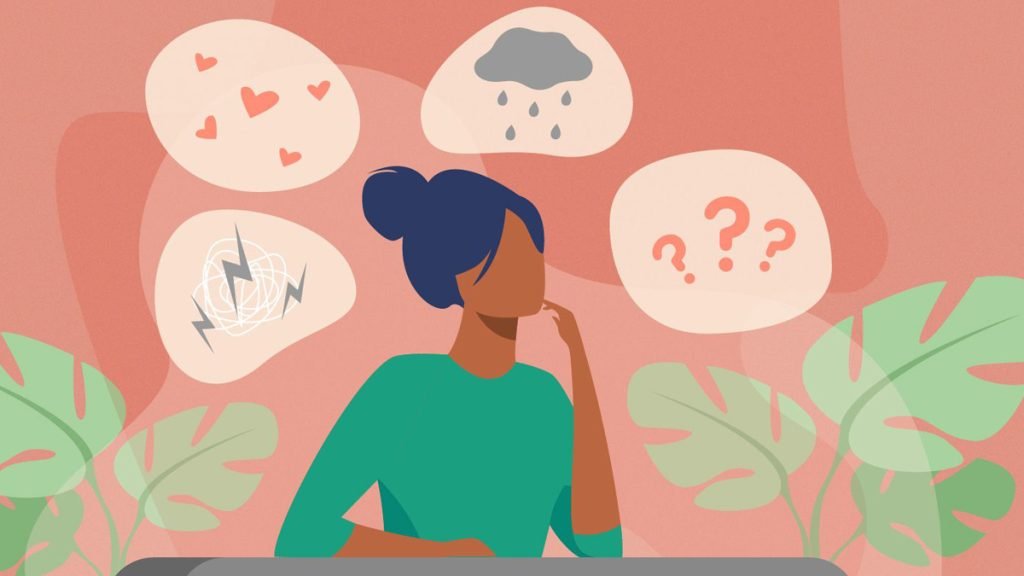In a recent episode of The Nadia Khan Show, Pakistani actress Meera unleashed her fury on the studio team and attacked the show’s producer, seriously injuring him. Meera locked herself in the make-up room and demanded that she would not come out of the room until she was given the right to host the show. On several occasions in the past, Meera has behaved in a highly agitated and irrational manner and shown irritability. Samreen Masood is working as a psychologist at Willingways Lahore. She did M.Phil in Clinical Psychology from Kinnaird College for Women, Lahore and BSc Honors in Applied Psychology from there. She has experience working as an intern at Shaukat Khanum Memorial Cancer Hospital and Research Center. There she specialized in counseling and relaxation techniques with young cancer patients and children. At Shaukat Khanum, Samreen worked with common disorders such as anxiety, depression and OCD, she also worked in palliative care counseling. Received training. Samreen has also worked as an intern at the Combined Military Hospital with major mental disorders like Schizophrenia, Bipolar and Border Line Personality Disorder.
Editor: Arman Ahmed
According to Hollywood Report, actress Britney Spears also showed anger and irritation on the plane at one point and demanded that she be removed from the plane because the plane does not have leather seats. The actress has bipolar disorder. (Bipolar Disorder) has been officially diagnosed. In another famous incident, Britney Spears shaved her head to reveal her bipolar tendencies. Many other famous people have also adopted very serious and aggressive behavior under the influence of this disease. Many Hollywood actors such as Ben Stiller suffer from bipolar disorder. Has been found indulging in provocative and provocative behavior on the sets of his films. Due to which his team faces a lot of difficulties in handling him. Bollywood’s famous actress Deepika Padukone also openly admits that one of her successful films Happy New. During the shooting of Iyer (Happy New Year), she was battling severe depression. It is said that Deepika has managed to keep her volatile temper very well under control.
Bipolar disorder is characterized by episodes of mania and depression. In which there is a sudden change in mood. In this, individuals have abundant energy and fluctuations in activities and daily functioning. Bipolar disorder has two extremes, depression and mania. (Mania) Depression is defined as a sense of self-loathing and lethargy. In depression, a person feels low on himself and suffers from lethargy. Such a person experiences hopelessness, helplessness, lack of interest in pleasurable activities and changes in appetite. People suffering from depression usually feel worthless and guilty. Mania, on the other hand, involves extreme mood swings. In it one feels very high and happy with abundant energy and increased flight of ideas. In this case, there is a lack of sleep, a desire to talk a lot and generally engage in risky behaviors. Sudden mood swings and aggressive behavior can damage their relationships, affect job and school performance, and in some cases lead to suicide.
Bipolar is classified into two main types. Bipolar 1 and Bipolar 2. Bipolar 1 is characterized by at least one full-scale mania episode and an accompanying episode of hypomania or a major depressive episode. Hypomania is a milder form of mania. In this form, however, there is abundant energy, pressure of conversation and flight of ideas. But the difference between Hypomania and Mania is the absence of psychotic symptoms and affective emotions. Although hypomania is a key feature of bipolar 2, in bipolar 1 it is only a small change in mood that occurs during a person’s transition from normal to manic mood. In bipolar 2, as described above, there is at least one hypomania episode and full-scale major depression. A diagnosis of bipolar 1 requires that the duration of the southern episode be approximately one week. Whereas in bipolar 2, hypomania should persist for more than about four days.
According to some researchers, there is a strong relationship between bipolar disorder and drug and alcohol addiction. Addiction or addiction to drugs and alcohol is a physical, psychological, social disease that not only affects our physical health but also harms our psychological condition as well as hinders our social life. Drug dependence occurs when continued use of alcohol and drugs causes significant impairment in a person’s social, professional, and personal life. Which affects different parts of our brain. As stated above, bipolar disorder consists of two completely different psychological states, mania and depression. Commonly, the reason for the dual diagnosis of drug addiction and bipolar disorder is the use of different drugs that are used to maintain mood.
This is called self-medicating. People with bipolar disorder unconsciously turn to alcohol or drugs to control their sudden mood swings. According to Willing Ways project director Dr. Sadaqat Ali, people in the obsessive phase tend to use drugs more because they want to feel high and experience more adrenaline rush, excitement and exhilaration. As alcohol boosts a person’s self-esteem and confidence level, obsessive patients use it more to achieve extreme pleasure. In contrast, when a bipolar patient is depressed or depressed, he uses various drugs to keep himself sane and uplifted. Alcohol or any drug, such as opiate-based pain relievers, can help numb and reduce the symptoms of depression. According to some people, the drug is also helpful in relieving insomnia and anxiety problems. About fifty-six (56) percent of people with bipolar disorder have been found to be addicted to drugs and alcohol.
The most popular addictions among bipolar patients include alcohol, cannabis, opiates, cocaine, sedatives, and amphetamines. Most drugs are mixed with alcohol to achieve a higher effect. (Self-Medicating) In addition to self-medicating behavior, poor judgment and motivation can also contribute to addiction in bipolar patients. Individuals with bipolar disorder are particularly susceptible to addiction due to self-medicating behavior. But in some cases, the symptoms of bipolar disorder develop due to drug addiction. Addiction-induced bipolar disorder can be defined as a mood disorder caused by alcohol and drug abuse. In such cases, bipolar symptoms are not present prior to the alleged drug use. But they become apparent within a month or so of addiction or abstinence and subside within a few weeks of abstinence.
In patients with pre-existing bipolar disorder, mood symptoms appear immediately after drug use. Although she had never appeared before. Bipolar symptoms tend to worsen during or after intoxication. (Mood Disorder) A strong form of mood disorder. Individuals with a dual diagnosis of bipolar disorder and alcoholism experience difficulties at various points in their lives, and their relationships with family and friends are severely compromised by their illness. Behavioral problems of such patients can cause problems with schools, universities and authorities. Such people are prone to risky behavior and may be hospitalized more than once due to chemical dependency and multiple psychiatric symptoms such as suicidality. People who have more than one disorder face serious legal problems and usually end up in jail.
Some people become addicted to certain drugs because their tolerance increases. When people seek out a particular type of drug for pleasure, a lot of dopamine is released into the bloodstream. Dopamine is a chemical component in the human brain. Which is associated with pleasure-seeking behavior. The more Dopamine is supplied, the greater the pleasure. When a person consumes large doses of the drug continuously, the brain becomes accustomed to providing higher amounts of Dopamine and thus the same amount of the same drug does not produce the desired effect. In order to achieve the same level of satisfaction, those individuals then have to consume more food than before. Thus, once it starts in people with bipolar disorder, it cannot be stopped until they get proper treatment.
Individuals with a dual diagnosis of bipolar disorder and addiction have a worse medical course or treatment than those with mood disorders acting alone. Patients with dual diagnosis and alcohol dependence tend to recover more slowly than patients who do not. The coexistence of bipolar disorder, drugs, and addiction makes treatment much more difficult. While either one is easy to treat. Much research is still needed regarding the effective treatment of dual diagnosis, but effective and important treatment methods are still widely accessible. Recent developments in the field of pharmacotherapy for mood disorders prove to be very beneficial for such people. Which are prone to dual diagnosis, as this treatment has less adverse and toxic effects. According to recent reviews, there has been a strong emphasis on therapeutic techniques for the treatment of individuals with dual diagnosis, in whom these disorders are more common.
Treatment of bipolar disorder can help reduce cravings for drugs and alcohol. A number of medicines help to cleanse the body of toxins and also control the craving for drugs and alcohol. Similarly, many other medications help treat and control the symptoms of bipolar disorder. A healthy combination of both types of medication is useful in treating dual diagnosis. Along with drugs, some psychotherapeutic techniques are also effective for such patients. A combination of group and individual therapy, family therapy, and cognitive behavior therapy can be used to effectively treat individuals with dual disorder. Psychotherapy also helps patients resolve behavioral problems and help them manage their lives. And it also helps to change your behavior. Such therapy maintains healthy relationships with family, friends and colleagues.

